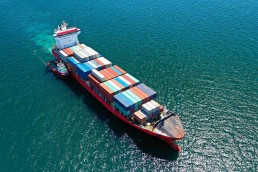
The Good, the Bad & the Ugly: 100 cases every policyholder needs to know. #4 (The Good). The Orjula
Welcome to the latest in the series of blogs from Fenchurch Law: 100 cases every policyholder needs to know. An opinionated and practical guide to the most important insurance decisions relating to the London / English insurance markets, all looked at from a pro-policyholder perspective.
Some cases are correctly decided and positive for policyholders. We celebrate those cases as The Good.
Some cases are, in our view, bad for policyholders, wrongly decided, and in need of being overturned. We highlight those decisions as The Bad.
Other cases are bad for policyholders but seem (even to our policyholder-tinted eyes) to be correctly decided. Those are cases that can trip up even the most honest policyholder with the most genuine claim. We put the hazard lights on those cases as The Ugly.
At Fenchurch Law we love the insurance market. But we love policyholders just a little bit more.
#4 (The Good)
Losinjska Plovidba v Transco Overseas Ltd (The Orjula) 14 June 1995
In a useful decision for policyholders under construction all risks insurance, the Commercial Court in The Orjula determined that the spillage of hydrochloric acid onto a vessel requiring decontamination was “damage”, even on the assumption that there was no corrosion. Although decided in the context of a negligence claim, the case opened up the possibility of greater recoveries under policies triggered by damage, demonstrating that even transient or reversible physical changes to insured property should suffice.
The decision
The claimant was a bareboat charterer of a vessel which operated a liner service. Two containers each containing 72 drums of acid were loaded on to the vessel in England, for transportation to Libya. The second defendant, whose application to strike out the claimant’s claim was being determined by the Court, was the physical supplier of the drums to the first defendant, the named shipper in the Bill of Lading.
On its route to Libya the vessel docked in Holland, where one of the containers was discovered to be leaking. On inspection it was found that the drums inside were damaged and required replacement and reloading, with the boat having to be decontaminated and the drums repacked inside the containers.
The Court, in refusing to strike out the claim against the second defendant, held that although it was only necessary to wash the acid off the boat before it could again be in a useable condition, a specialist cleaner had to be employed for this purpose before the vessel could again set sail. As a result, the claimant had suffered actual damage, not pure economic loss (which would not have been recoverable from the second defendant in negligence[1]).
The second defendant’s solicitor argued that there was no physical damage to the vessel. The contamination could be and was cleaned off with a soda solution and the only loss was the financial cost of the operation. The Judge summed up the defence argument as being, in effect, that prior to the cleaning the vessel remained undamaged albeit with a layer of hydrochloric acid over part of her deck or hatch.
Taking guidance from civil and criminal authorities, the Court considered whether there had been “injury impairing value or usefulness” of the property in question, and the need for effort and expense to restore the property to its former usable condition. The Judge rejected the submission that there was no damage, noting:
“Here, specialist contractors were engaged in undertaking the decontamination work using soda to neutralise the acid before washing the deck and hatch covers down with fresh water; further, it is pleaded, perhaps not surprisingly, that the vessel was required to be decontaminated of the hydrochloric acid before she could sail from the special berth to which she had been directed after discovery of the leakage. On these alleged facts, I would have no hesitation in concluding that the vessel should be regarded as having suffered damage by reason of her contamination”.
The alleged contamination of the vessel was held to constitute damage sufficient to enable the claimant to claim in tort against the second defendant for recovery of its loss and mitigation costs arising from negligence in the stowage of the containers.
Comment
In determining that damage was suffered in these circumstances, the Court acknowledged the reality that “injury impairing value or usefulness” (the dictionary definition of damage) can be sustained without there having been a permanent change to the damaged material.
The question of whether damage has occurred is often contentious in CAR insurance claims and this case is helpful in support of improved outcomes for policyholders, subject to expert evidence in appropriate cases and applicable policy wording.
[1] Murphy v Brentwood District Council [1991] 1 AG 398



